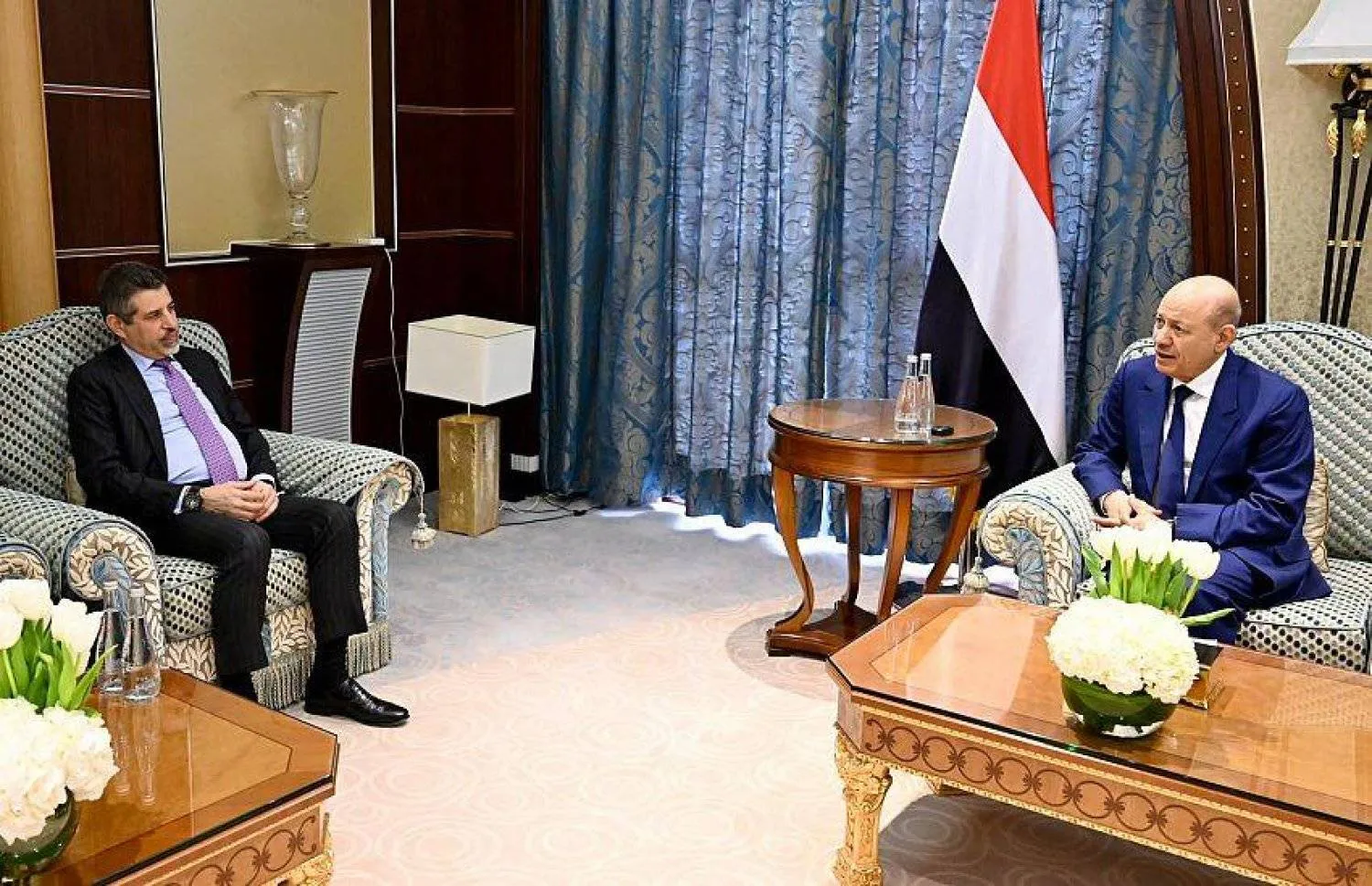The head of Yemen’s Presidential Leadership Council, Dr. Rashad Al-Alimi, has said it was important for the international community to counter Iranian attempts so smuggle weapons to the Houthi militias.
Alimi met Monday with the US Ambassador to Yemen, Steven Fagin, in Riyadh.
They discussed bilateral relations, the situation in Yemen and developments in the region and the world.
Alimi’s warning came as the Iran-backed Houthis have said they will continue to strike merchant ships in the Red Sea and the Gulf of Aden in what they call solidarity with Palestinians in Gaza.
State news agency SABA quoted Alimi as saying that Houthi attacks on vessels had severe repercussions on the living conditions of Yemenis, the people in the region and their national economies.
Meanwhile, UN Special Envoy for Yemen Hans Grundberg has returned to Muscat as part of his efforts to support the pace process that is set to end the conflict in Yemen.
Grundberg’s office said on “X” that the envoy met in Muscat with the spokesman of the Houthi militias, Mohammed Abdulsalam.
It said that Grundberg also held talks with senior Omani officials. “They discussed ways to make progress on a UN roadmap for Yemen and the need for broader de-escalation in the Middle East,” said the statement.
In his latest briefing to the UN Security Council last week, the envoy called “on the parties to refrain from unilateral escalatory measures and engage in good faith dialogue under the auspices of the UN to find common solutions through collaboration, and to turn disputes into opportunities to take the path towards common prosperity.”
He also called for separating the Yemeni crisis from other crises in the region, including the Israeli war on Gaza.









